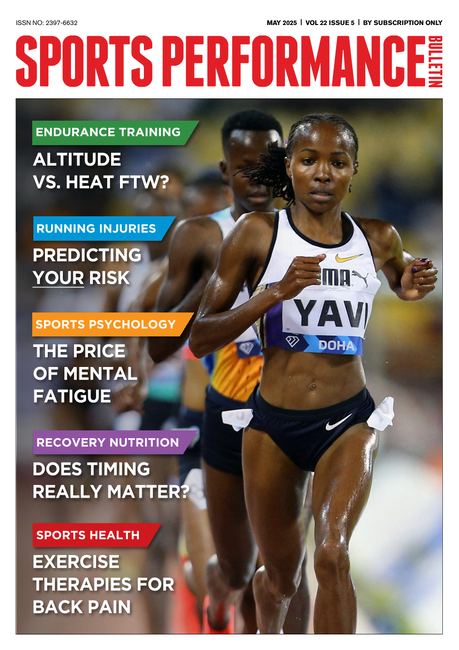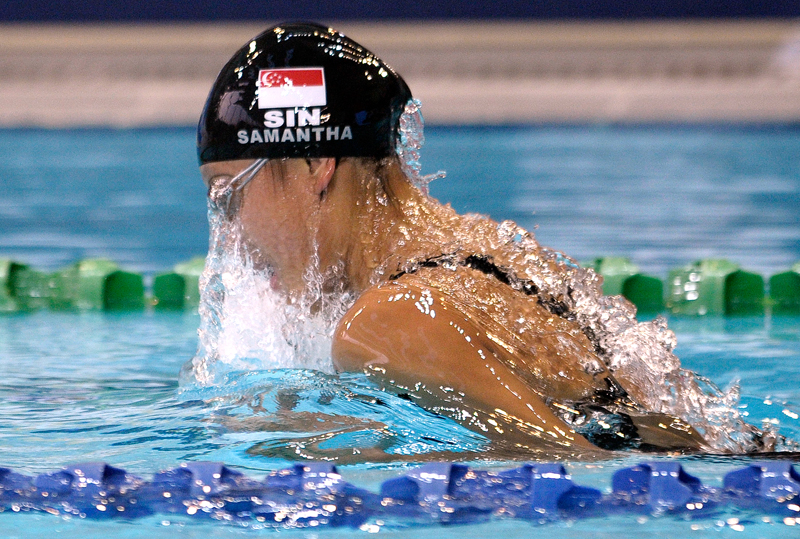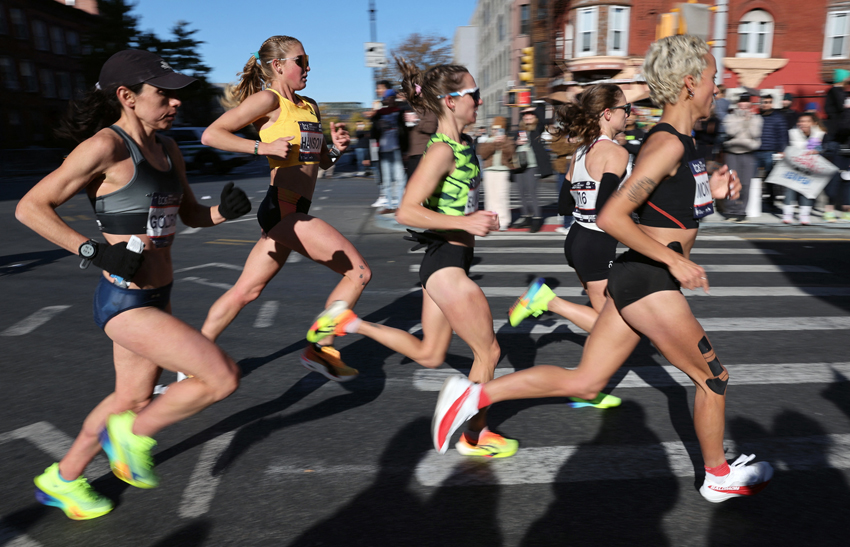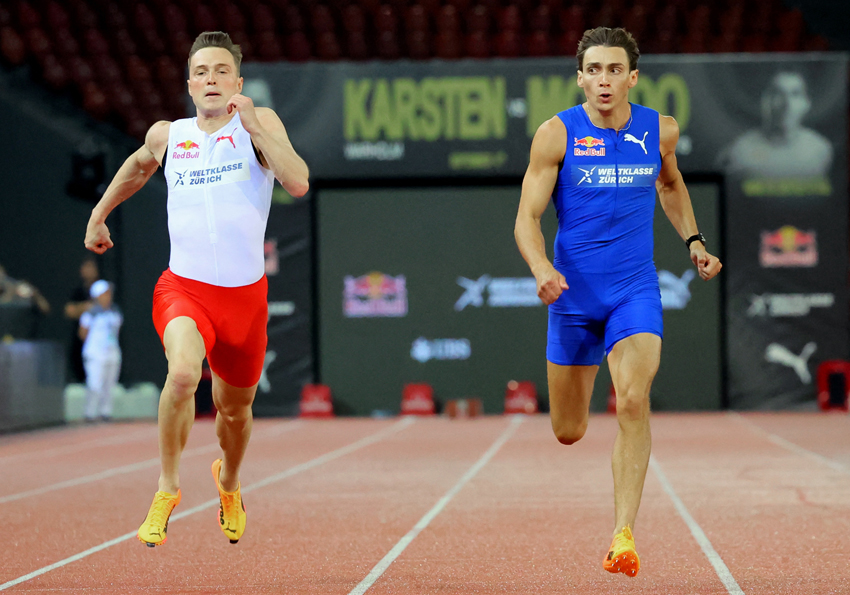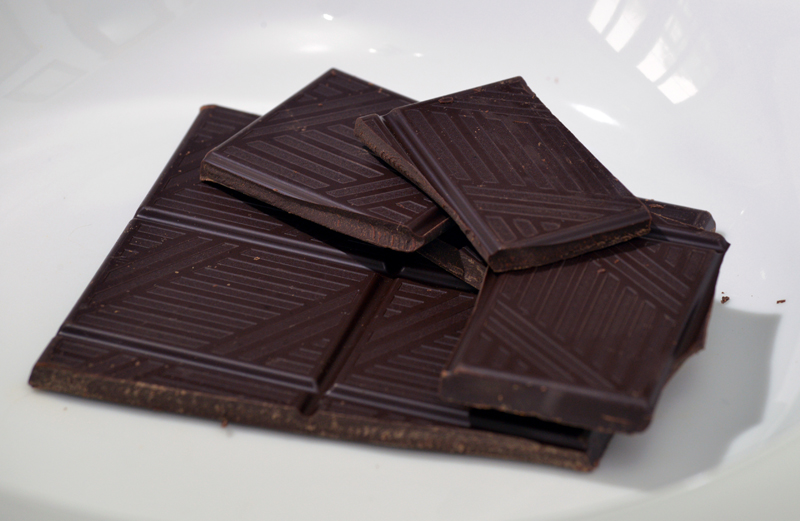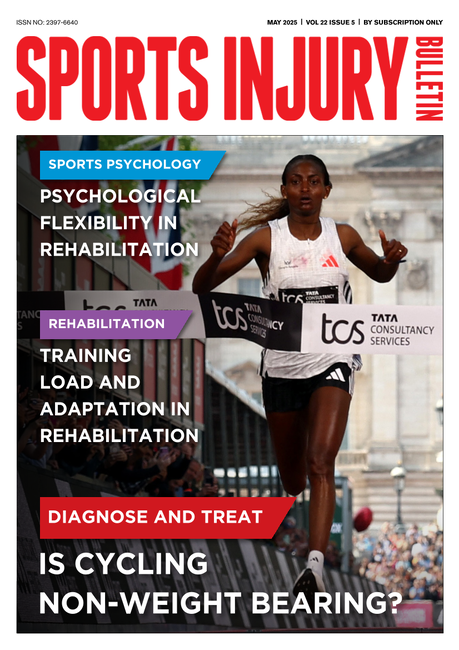Athletes and sleep
Can sleep really hurt your performances?
Many athletes sleep poorly during the night before a major competition or after crossing several time zones to compete, but most athletes aren't sure exactly how this loss of sleep will affect their performances. Some elite athletes claim they have set PBs after a night of tossing and turning, but the prevailing view is that poor sleep leads to poor performances (see also PP, issue 69).One problem in figuring out how sleep deprivation influences exercise capacity is that scientists don't completely understand sleep itself.
What's known is that sleep can be divided into five distinct stages. Stages1 through 4 represent non-rapid-eye movement sleep; during a normal night of sleep they are usually followed by the well-known REM or rapid-eye movement stage (stage 5). Stages 3 and 4 produce brain waves which have a slow frequency; these stages are thus called 'slow-wave' sleep. Sleep scientists reckon that during a night of normal sleep, REM and non-REM sleep repeat in cycles of about an hour and a half, although age and the amount of prior sleep can alter this pattern.
Slow-wave sleep is critically important for athletes, because it's the portion of the night when growth hormone is released from the pituitary gland at the base of the brain. Growth hormone stimulates muscle growth and repair, bone building, and fat burning, and is thus one of the key hormones which help athletes recover from tough workouts and improve physiologically. Studies show that when an athlete loses sleep, growth-hormone release diminishes. This may be a key reason why extended sleep loss can harm performance.
But how much sleep do you have to lose in order to decrease your ability to run a 10K, or to lift weights, or diminish your pedal-pushing power on a bicycle? We do know that as little as 20 hours of sleep deprivation can lower mental performance, but the amount of sleep loss required to punish physical performance is less certain. What is known is rather startling - and often suggests that the human body is rather resilient to sleep loss. For example, after 60 (!) hours of sleep deprivation, most individuals don't rate short, intense workouts as being harder than usual (e.g., harder than they would be after normal sleep). In addition, oxygen consumption is the same and heart rate may actually be lower than usual for athletes doing standard workouts after 30 hours without sleep, even though the athletes feel sleepy and fatigued and report that the training session 'feels harder'.
Nonetheless, lack of sleep can have a negative impact on performances. Studies show that 36 hours without sleep decrease an athlete's time to exhaustion (how long he/she can perform without stopping) by an average of about 10 to 11 per cent at a moderately hard intensity of about 80% VO2max (87 per cent of max heart rate). However, a notable aspect of this research is that there is tremendous variability among individuals: some show large losses in performance (15 per cent or more), others decline by small amounts (less than 5 percent), and a few athletes actually perform a bit better when they are sleep deprived.
Sleep loss does diminish the ability to produce peak power while exercising (e.g., when sprinting for home at the end of a race, accelerating up hills while cycling, or churning the water during a 200-metre swim race), at least partially because it can lower maximal heart rate. It's also clear that sleep loss can harm coordination and efficiency during exercise (remember that only 20 hours without sleep can deter normal mental functioning, which would lead to less-efficient control of the muscles by the nervous system). Not surprisingly, vertical jumping ability and isokinetic strength deteriorate during sleep deprivation.
Another problem associated with poor sleep, especially relevant considering this-year's Olympic location, is that body temperature is strongly affected by sleep loss. The good news for athletes spending sleepless nights in hot climates is that sleep loss lowers resting body temperature, making athletes feel cool even on warm days, but the bad news is that body temperature rises faster during exercise when an athlete is sleep deprived.
However, there's some other good news. In spite of all the bad effects mentioned above, as many as 64 (!) hours without sleep do not hurt 100-metre dash performances, nor does such sleep loss decrease isometric strength. And the further good news is that most athletes don't actually go 30 to 60 hours with no sleep at all, which is the kind of sleep deprivation that really hurts performances. It's much more common for an anxious or time-zone-changed athlete to get at least a little sleep, even if it's just two to three hours per night, during the night (or nights) before an important event. Scientific research regarding the latter scenario is pretty reassuring.
For example, studies show that if an athlete only sleeps 2.5 hours per night for three nights, there is no loss in hand- and arm-muscle strength, no decrease in broad-jumping ability, no increase in perceived exertion during exercise (a tough race or workout doesn't feel more difficult than usual), no decline in lung functioning or respiratory capacity, and - most importantly - no loss of endurance capacity. It's true that anaerobic power does decline a little, which would tend to most affect individuals in competitive events lasting 10 minutes or less. This loss is actually fairly small, but even a few hundredths of a second can make a huge difference in how one places in a race! Sleep is important.
But the best news of all is that research indicates that the problem most often experienced by athletes - just one night of almost total sleeplessness before a major event - is unlikely to hurt performance.
The bottom line is that if you think you will perform more poorly after such a night, you probably will. So don't think that way! The scientific evidence is reassuring that you'll still have a great chance to set your PB, even if you also set a PB for tossing and turning the night before.
You need to be logged in to continue reading.
Please register for limited access or take a 30-day risk-free trial of Sports Performance Bulletin to experience the full benefits of a subscription. TAKE A RISK-FREE TRIAL
TAKE A RISK-FREE TRIAL
Newsletter Sign Up
Testimonials
Dr. Alexandra Fandetti-Robin, Back & Body Chiropractic
Elspeth Cowell MSCh DpodM SRCh HCPC reg
William Hunter, Nuffield Health
Newsletter Sign Up
Coaches Testimonials
Dr. Alexandra Fandetti-Robin, Back & Body Chiropractic
Elspeth Cowell MSCh DpodM SRCh HCPC reg
William Hunter, Nuffield Health
Keep up with latest sports science research and apply it to maximize performance
Today you have the chance to join a group of athletes, and sports coaches/trainers who all have something special in common...
They use the latest research to improve performance for themselves and their clients - both athletes and sports teams - with help from global specialists in the fields of sports science, sports medicine and sports psychology.
They do this by reading Sports Performance Bulletin, an easy-to-digest but serious-minded journal dedicated to high performance sports. SPB offers a wealth of information and insight into the latest research, in an easily-accessible and understood format, along with a wealth of practical recommendations.
*includes 3 coaching manuals
Get Inspired
All the latest techniques and approaches
Sports Performance Bulletin helps dedicated endurance athletes improve their performance. Sense-checking the latest sports science research, and sourcing evidence and case studies to support findings, Sports Performance Bulletin turns proven insights into easily digestible practical advice. Supporting athletes, coaches and professionals who wish to ensure their guidance and programmes are kept right up to date and based on credible science.


